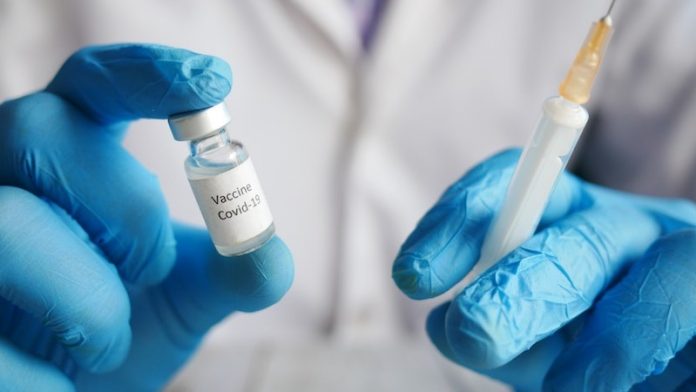
Scientists from the U.S. Centers for Disease Control and Prevention compared booster strategies for the millions of people who have received Johnson and Johnson (J&J) vaccines.
They found that boosters following vaccination with the J&J vaccine are effective in protecting against hospitalizations from COVID-19.
They found that any booster strategy is better than a single J&J dose, which should encourage anyone who has only had a J&J vaccine to get a second COVID-19 vaccine as soon as possible.
Individuals with three doses of mRNA had the strongest level of protection against the severe consequences of the disease.
The research is published in Morbidity and Mortality Weekly Report and was conducted by Brian Dixon et al.
In the study, the team found vaccine effectiveness against COVID-19-associated emergency department and urgent care visits was only 24% after one J&J vaccine.
It increased to 54% after two J&J doses, and 79% after one J&J dose plus an mRNA booster. That’s compared to 83% after three mRNA doses.
Vaccine effectiveness for the same strategies against COVID-19 associated hospitalizations was 31% for the single J&J shot, 67% for two J&J shots, 78% for one J&J shot, and an mRNA booster, and 90% for three mRNA doses.
The team says that people should expect that boosters will be effective against new variants as they emerge.
This paper reinforces the importance of getting boosted. It’s important to do it now when rates of disease are low.
Recent studies have found why people with blood Type O less likely to get COVID-19, and a new drug that could prevent COVID-19, which are highly relevant to the current study.
Sign up for our newsletter for more information about this topic.
Previous research has found that Omicron can be neutralized by a booster dose.
In a study from Pasteur Institute published in Nature, researchers found that Omicron is much less sensitive to neutralizing antibodies than Delta.
They isolated the Omicron variant of SARS-CoV-2 from a nasal sample of a 32-year-old woman who developed moderate COVID-19 a few days after returning from Egypt.
The team first tested the sensitivity of the Omicron to monoclonal antibodies used in clinical practice to prevent severe forms of the disease, as well as to antibodies in the blood of individuals previously infected with SARS-CoV-2 or vaccinated.
They compared this sensitivity with that of the Delta variant and found that Omicron is much less sensitive to neutralizing antibodies than Delta.
The scientists then analyzed the blood of people who had received two doses of the Pfizer or AstraZeneca vaccine. Five months after vaccination, the antibodies in the blood were no longer capable of neutralizing Omicron.
This loss of efficacy was also observed in individuals who had been infected with SARS-CoV-2 within the past 12 months.
But administering a booster dose of the Pfizer vaccine or a single vaccine dose in previously infected people led to a big increase in antibody levels that were sufficient to neutralize Omicron.
Five to 31 times more antibodies were nevertheless required to neutralize Omicron, compared with Delta, in cell culture assays.
Omicron is therefore much less sensitive to the anti-SARS-CoV-2 antibodies currently used in clinical practice or obtained after two vaccine doses.
The scientists concluded that the many mutations in the spike protein of the Omicron variant enabled it to largely evade the immune response.
If you care about COVID, please read studies about drug combo that could effectively fight COVID-19, and vegetables and coffee that could protect against COVID-19.
For more information about Covid, please see recent studies that COVID-19 booster shots prompt stronger, longer protection than original shots, and results showing breakthrough COVID infections very mild for vaccinated people.
Copyright © 2022 Knowridge Science Report. All rights reserved.



